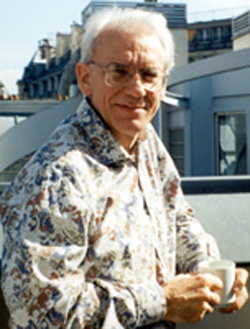M. Norton Wise
Biography
M. Norton Wise works on topics from the late 18th century to the present, specializing in the history of physics and paying particular attention to the relations between science and industrialization. With Crosbie Smith, he wrote Energy and Empire:A Biographical study of Lord Kelvin, which shows how the great transformation of physics in the mid-nineteenth century–yielding thermodynamics, electromagnetic theory, and the theory of vortex atoms–grew up together with the problems of steam engines, telegraph cables, and vortex turbines. His series on “Work and Waste: Political Economy and Natural Philosophy in 19th Century Britain” developed the point further to show how the steam engine functioned as an active mediator between industrial and scientific interests, with the “work done” by the engine measuring both “labor value” in economics and “energy” in physics. On a much broader scale the volume he edited on The Values of Precision developed the theme that the blossoming of precision measurement from the late 18th century through the 19th expressed the values and requirements of states attempting to centralize their control and of traders seeking to extend their reach over larger areas.
More recently Wise has been contributing to the historiographical development of “cultural history of science”, exploring the ways in which major developments in the sciences emerge from intensely local and contingent circumstances. He is completing a book on Bourgeois Berlin and Laboratory Science, which draws the young men who formed the famous Berlin Physical Society in 1845—Du Bois-Reymond, Helmholtz, Siemens, and others?out of a dense network of personal relations and institutional affiliations extending across the fine arts, technical expertise, and military education. A taste of this style of history can be obtained from “Reform in the Garden” (click here) or its more extensive version “Staging an Empire” (see vita below), which show how an English garden near Berlin helped to project British steam technology, along with dreams of industry and empire, into the Prussian landscape.


